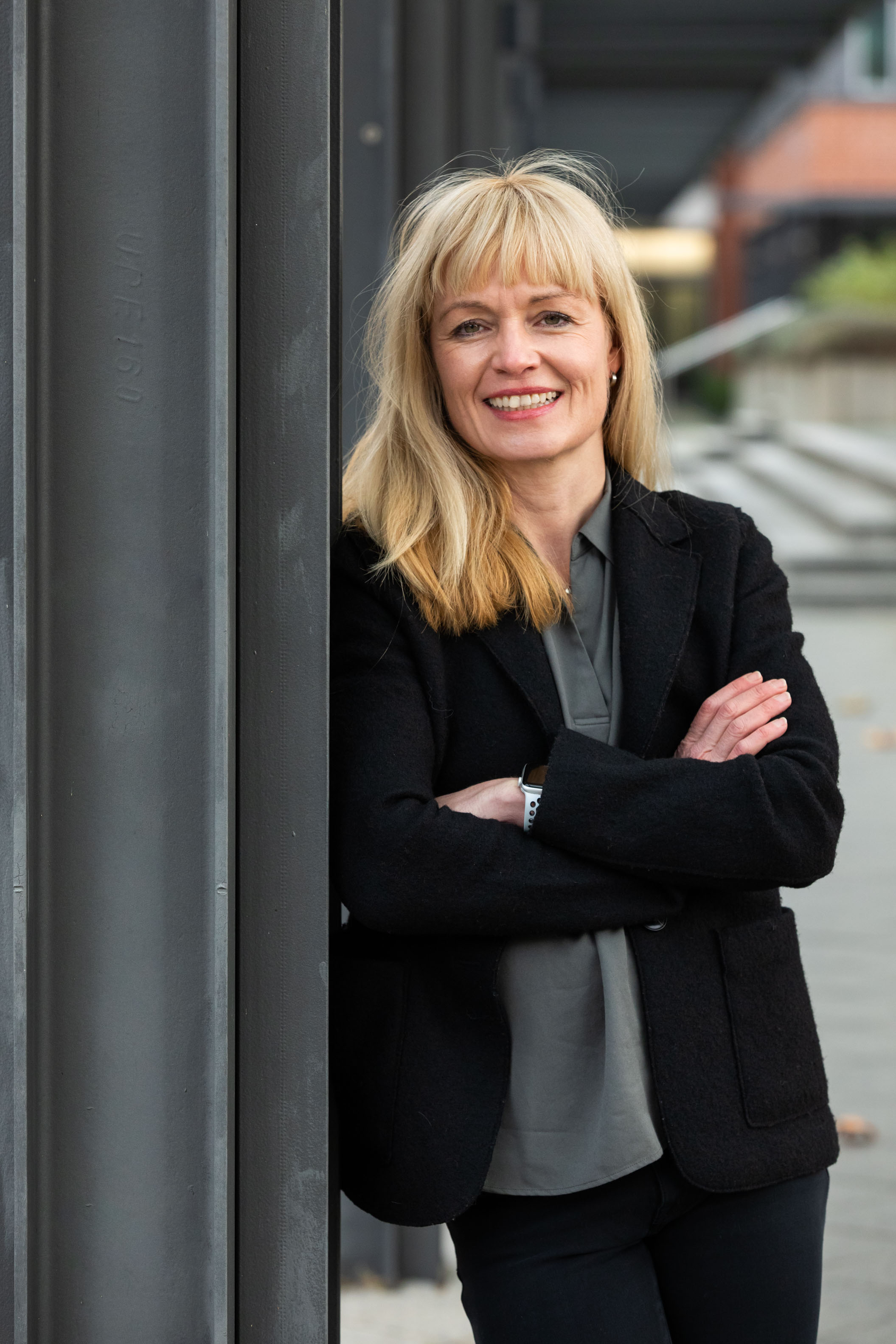Sebastian Körbs' artistic oeuvre includes prints, drawings, paintings as well as sculptures and installations; 40 works are on display in the exhibition. The artist devotes himself largely to abstract, primarily ornamental forms. Since an extended stay in Istanbul and the intense study of Ottoman art and architecture that accompanied it, Körbs has repeatedly explored Ottoman-influenced ornamentation in his series of works. In more recent series of works, he also approaches figurative representation through the means of abstraction, expressing the growth of life with his repetition of ornamentation. "We see here an enormous variety of artistically expressed forms that connect with our biotechnology center - art meets science in all its forms," said KWS Executive Board member Eva Kienle in her welcoming words. Sebastian Körbs dedicated the title "Gloria" for his exhibition to his daughter, who was born in 2021 and present at the opening with her mother.
At the vernissage at the KWS Biotechnikum, which was accompanied by Tayfun Guttstatt with oriental sound, art historian and choreographer Dr. Daniel Rakovsky (Basel) introduced the works on display and Sebastian Körbs' working methods. Rakovsky said it was not surprising that Sebastian Körbs, an artist who navigates between the Occidental and Ottoman art traditions, chose a gate, of all things, as the monumental work at the center of his exhibition. "Körbs' work is an invitation to pass through gates." Gates, he said, were neither a clear object nor a specific space; rather, the gate should be understood as an in-between space, an abstract place where two separate worlds can touch. As Rakovsky put it: at the gate, which is reminiscent of oriental window lattices, air can circulate freely, and the different worlds are never completely separated. "With this gate, two central dimensions of Körb's work are directly expressed: his relationship to space and his fascination with the power of ornament," the art scholar explained. "The sculptures build up new spaces that were not perceived before, they literally reveal invisible spaces.“ Körbs also intertwines gates, so that the empty form of one sculpture becomes fullness within another. He unfolds a variation of motifs inspired by ornamental art discovered in Turkey. It is about basic structures and the simple clarity of two principles: the form and its repetition. While many numb themselves with constant newness, Sebastian Körbs' works suggest that everything new is ultimately a variation of the same, the art expert said. His figures and faces were also ultimately based on the repetition of ornamental patterns.
Sebastian Körbs, born in Magdeburg, lives and works in Berlin. He studied at the Hochschule der Bildenden Künste in Braunschweig, where he received his diploma in liberal arts in 2012 under Prof. Bogomir Ecker and Prof. Friedemann von Stockhausen. In 2013 he became a master student of Prof. Ecker. Numerous scholarships, such as the annual work scholarship of the state of Lower Saxony or the residency scholarship at the Martin-Kausche-Ateliers in Worpswede and the residency scholarship Istanbul of the Art Foundation Saxony-Anhalt, enable Sebastian Körbs to deepen and develop his artistic work. In addition, he worked for several months in New York and again for several months in Istanbul, where he discovered his passion for Ottoman-influenced ornamental art.

